Notes from the Masters: Books on Writing by Famous Authors

- Oops!Something went wrong.Please try again later.
- Oops!Something went wrong.Please try again later.
In J.K. Rowling’s famous Harry Potter franchise, Albus Dumbledore says that words are our most inexhaustible source of magic. If you’ve ever read a poem that made you cry, a novel that inspired you or a short story that changed the way you see the world, you know exactly what he’s talking about. Words have the power to influence how people think, how they feel and how they act. By picking up a pen or sitting down at a computer to type, you can channel that power in any way you choose. But writing is not easy and becoming a writer involves learning technical skills, building up the habit of writing often and finding ways to come up with ideas.
If you want a little guidance on your journey to becoming a writer, there’s no one better to mentor you along the way than the people who have dedicated their lives to the craft. Don’t be intimidated. You don’t have to try to become the next Shakespeare — you don’t even have to show your work to anyone else. You just have to find a style that works for you. These books, all by award-winning authors, will teach you how to write everything from poetry to fantasy literature and will provide expert tips, firsthand experiences in the publishing industry and writing exercises to hone your skills. Follow the lead of these literary masters and you’ll be harnessing the magic of writing in no time.
1. On Writing: A Memoir of the Craft by Stephen King
Arguably the most popular writing manual on the market right now (it has 4.4 out of 5 stars from a whopping 19,940 reviews on Amazon), Stephen King’s On Writing: A Memoir of the Craft follows the prolific author’s journey from aspiring writer as a child to massive literary success as an adult. King lays out all of his writing habits, specific technical recommendations, and insights into navigating the publishing world. King writes with honesty, heart and humor, bringing up even painfully personal experiences from his past and making the reader feel like they’ve truly gained a mentor and a friend through his instruction.

2. Wonderbook: The Illustrated Guide to Creating Imaginative Fiction by Jess Vandermeer
New York Times bestseller Jeff VanderMeer, who has been a published author since he was 14, aims to provide the only imaginative fiction guide you’ll ever need with this compilation of artwork, exercises and instructional information. In this recently revised and expanded edition, VanderMeer takes a very visual approach to teach fantasy with maps and renderings but also includes sidebars and essays from wildly successful authors like George R.R. Martin, Neil Gaiman and Lev Grossman. Reviewers say that this book is an absolute necessity for anyone interested in fantasy, even highly advanced writers.

3. Zen in the Art of Writing: Essays on Creativity by Ray Bradbury
Ray Bradbury, most often known for his renowned novel, Fahrenheit 451, presents 11 essays giving a background of his history and methods as an author as well as his advice for people who already have a passion for writing. Bradbury discusses the importance of finding your own voice, living life to the fullest and making time to write every single day — quantity leads to quality in Bradbury’s opinion. All of the essays were written before 1990, but reviewers ensure that Bradbury’s wisdom is timeless.

4. Bird by Bird by Anne Lamott
Anne Lamott, a California Hall of Fame inductee and Guggenheim Fellowship recipient, knows what she’s talking about when it comes to writing. The bestselling novelist and non-fiction author of titles such as Operating Instructions and Help, Thanks, Wow gets honest about the effort it takes to pursue a passion for writing and the beauty that can be found in the struggle. Lamott urges readers to reject perfectionism and embrace messy first drafts through writing exercises. Bird by Bird explores topics like utilizing personal pain in writing, overcoming writer’s block, finding a community of fellow writers and dealing with criticism. Fans of the book appreciate Lamott’s self-deprecating humor and the life lessons she provides through personal anecdotes.
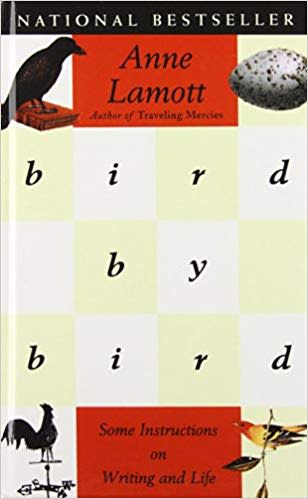
5. Rules for the Dance: A Handbook for Writing and Reading Metrical Verse by Mary Oliver
National Book Award and Pulitzer Prize-winning poet Mary Oliver believed poetry shouldn’t be fancy, but rather accessible. Oliver, who recently passed away at age 83, breaks poetry down to its simplest form to help you understand the often-confusing technical aspects of the art. If you’re interested in writing metered verse, or just looking to understand it better, Oliver makes it easy and, readers say, provides some great tools for personal growth through writing as well.

6. Letters to a Young Writer: Some Practical and Philosophical Advice by Colum McCann
Don’t let the title fool you, this collection of 52 honest and inspirational essays is for anyone interested in writing, regardless of age. Colum McCann, National Book Award-winning author of Let the Great World Spin and professor of creative writing at Hunter College, uses humor to make this book feel like reading letters from an old friend who just happens to be giving great advice, and a call to action, about writing. Colum discusses breaking through writer’s block, finding the best ways to harness inspiration, writing what you don’t know rather than what you do, and a multitude of other topics to encourage readers to stop being scared and start writing.

7. The Writing Life by Annie Dillard
If you really want to get inside a successful writer’s mind, know their habits, and see their thought process happen as they write it down, then look no further than Annie Dillard. A professor, mentor, and widely acclaimed author in her own right, Dillard has created a book that touches on the magic of the natural world and her place within it. Through intense critical analysis, Dillard thinks about her own life, the world around her, and how writing, for her, has been the best pleasure. She gives practical advice, funny anecdotes, and a basic guide on beginning to think like a writer. If you’re as interested in the process of becoming a writer as you are with writers themselves, then this book is a gift.
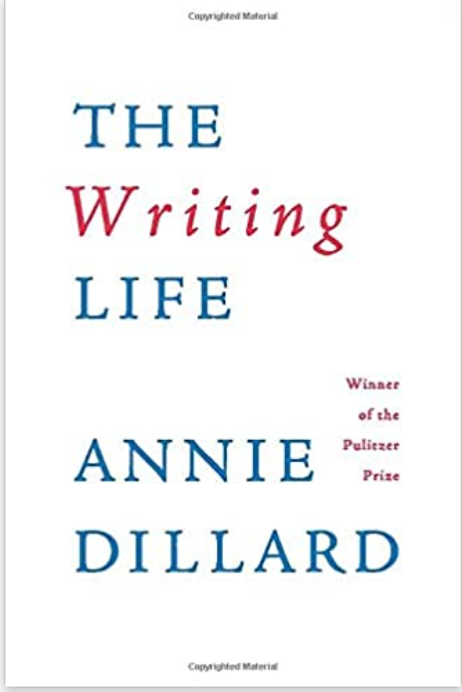
8. The Artist’s Way by Julia Cameron
A book long celebrated for its 12 week process, this book will take you on a fulfilling journey toward creativity. Stuck? Can’t come up with an idea? Julia Cameron’s award winning book has prompts, ideas, and writing exercises to guide you on your way to a more fulfilling, creative life. Her thesis is that everyone is and can be creative, and in these 12 weeks, all you have to do is complete the writing exercise of the day and see your progress move through paying attention. The best part of Cameron’s book is that it doesn’t focus solely on becoming a writer; becoming a musician, a poet, a painter, or a scriptwriter are all creative pursuits that lie within us. Cameron helps draw them out. If you’re in need of some day-to-day guidance, then this is the book for you.

9. Big Magic: Creative Living Beyond Fear by Elizabeth Gilbert
Elizabeth Gilbert’s blockbuster book of creativity is full of helpful advice, prompts, hints, and an overall structure to give your creative life a boost. Are you stuck or feeling depressed about being creative in the first place? Or perhaps you need encouragement to begin an idea you’ve had for years; either way, Gilbert’s book about going beyond the fear to start living creatively and working within creative spaces. This book is partly inspiration to be creative and partly a how-to guide to be creative. Gilbert gives plenty of real advice to pair with her optimistic outlook. This is an excellent guide for anyone swimming in fear of living their best creative life.
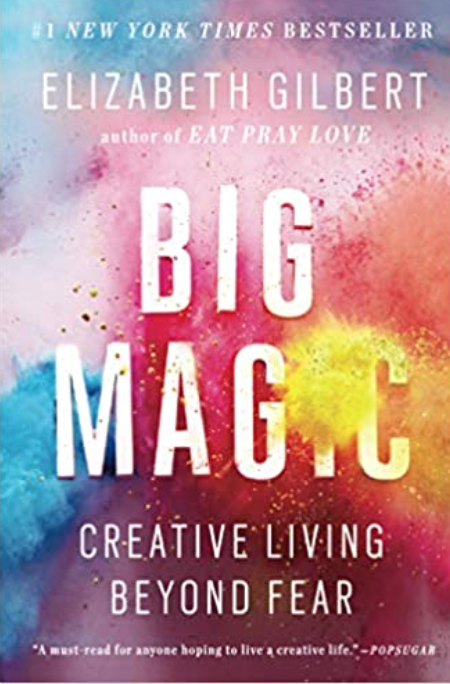
10. Save The Cat! The Last Book on Screenwriting You’ll Ever Need by Blake Snyder
The ultimate guide about screenwriting, you say? It can’t possibly be so. But Blake Snyder has been a best seller for years with his book on screenwriting, that elusive format that looks so strange. Look no further than Snyder, his how-to guide is full of practical advice, prompts, and examples to set you on your way to writing that award winning screenplay. Through his fast paced storytelling, he takes us inside the movie business though funny and personal stories. His logic for screenwriting follows the four steadfast elements of every winning logline and the seven immutable laws of screenplay physics to set you on your way to dominating the movie business. If you’ve ever wanted to write a screenplay but didn’t know where to start, Save The Cat! is a great portal into the magic of movie making.
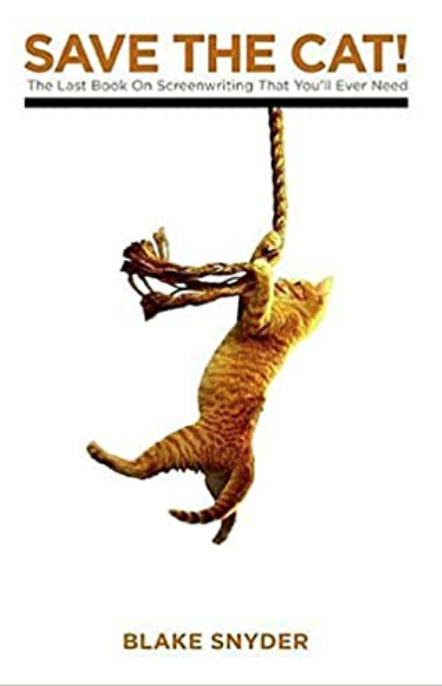
11. Craft in the Real World: Rethinking Fiction Writing and Workshopping by Matthew Salesses
If you’re on the fence about entering an MFA program in creative writing, then Matthew Salesses’ book is the perfect counterargument. He explains the new ideas and unique opportunities there are for writers that lie outside the traditional scaffolding of university programs and how we can even rethink the workshop itself. Is the writer being silent during the critique portion really necessary? What are the best tools on offer for aspiring writers? Salesses’ book examines these questions and the original framework of the workshop: white male writers and their culture at large. Salesses wants to know what the writing workshop could be if we took more cultures and people into account. Perhaps we can be more creative if we take other people’s values into account. This is an excellent book for anyone questioning the value system of the writing world and looking to change it from within.
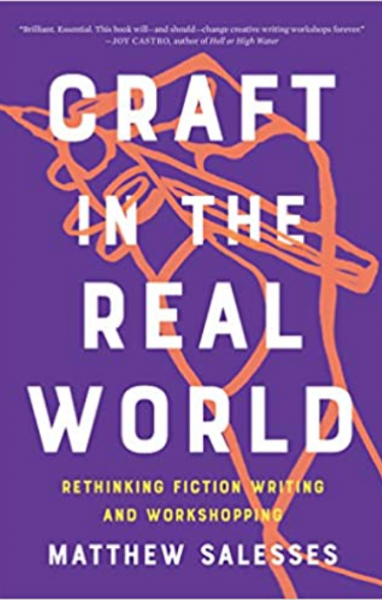
12. A Swim in the Pond in the Rain: In Which Four Russian Writers Give a Master Class on Writing, Reading, and Life by George Saunders
This comprehensive look at a George Saunders class on Russian literature has been broken down into four sections in which Saunders examines the four best Russian writers in history and the examples they give of brilliance through their own stories. If you’ve ever wanted to take a Saunders class, this is your chance and the bonus portion is that it can stay on your bookshelf forever for active reading. Learning from the great Russian writers has been helpful to numerous writers working today and pulling from their specific styles is a masterclass by Saunders inside a book. Try this if you’re interested in any kind of writing at all or love Russian literature.

13. The Art of Memoir by Mary Karr
After her breakout book The Liar’s Club hit the bestseller’s list for over a year, the award winning author and teacher Mary Karr has a book about the craft of memoir writing. If you have a dark past or memories you aren’t sure how to bring to the surface, her craft book will help through guides, tips, and specific advice. Karr’s skill lies in her ability to break open the conventional truths of memory and identity, and instead illuminates the power of reflecting on our past. Part catharsis, part guide, Karr’s book about memoir will break you open and leave you a better writer.
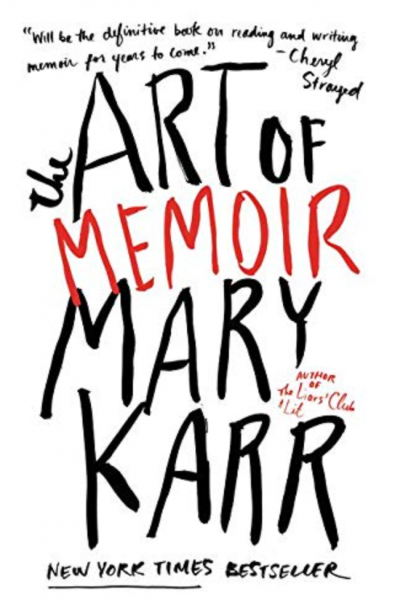
14. Steal Like an Artist: 10 Things Nobody Told You About Being Creative by Austin Kleon
If you’ve ever heard the age old adage “write what you know” then prepare to be blown away by Austin Kleon’s book about stealing from the greats. At first an instructional how-to guide on staying creative, Kleon takes his readers into the world of creativity, and shows us how to harness the mighty imaginative world from within. This is an excellent guide for any aspiring writer wondering how to process their imagination to words on paper.
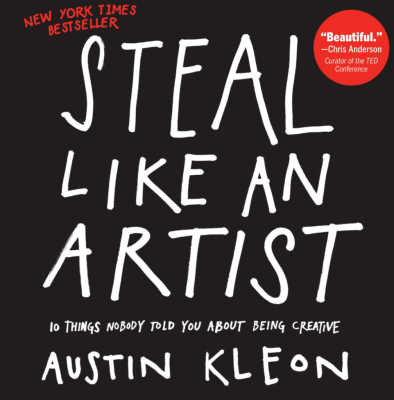
15. Save the Cat! Writes a Novel by Jessica Brody
Save the Cat returns with a guide to novel writing. Using the same universal themes and plot points you need to hit as when you’re writing a screenplay, this guide differs on using 15 beats for a novel and gives specific plot advice and genres. Jessica Brody employs the same attractive themes such as save the cat among many others in her excellent how-to book on novel writing.
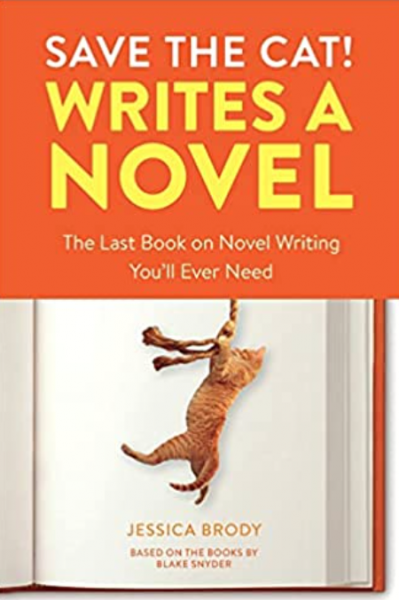
16. Story Genius: How to Use Brain Science to Go Beyond Outlining and Write a Riveting Novel by Lisa Cron
Lisa Cron’s book uses a scientific analysis of cognitive ability in terms of writing a compelling story; can we hit the beats of a successful story by using our own theories of science? Use this guide to learn how to make sure your story has a sense of urgency and suspense. Don’t waste 300 pages of writing only to reflect afterward that your book has no sense of suspense. Avoid a complete rewrite by learning how to hit the beats the first time around. This is an excellent book for first time writers who need a push in the right direction.

17. 13 Steps to Evil: How to Craft Superbad Villains by Sarah Black
Tired of writing cliched bad guys? Want your reader to root for them instead of giving up on them? Sarah Black’s comprehensive guide to writing an excellent villain hinges on the simple idea of getting to the core of your villain’s personality. What makes them tick? Once you’ve figured this out, the clichés will stop and the story will flow. Soon, you’ll have an entire cast of believable characters that your reader is willing to see through to the end.

18. Plotting and Writing Suspense Fiction by Patricia Highsmith
From acclaimed author Patricia Highsmith comes the all inclusive bible to writing plot and suspense. Since her breakout novel The Talented Mr. Ripley drew audiences worldwide, Highsmith has become one of the leading author’s in suspense. This book will take you through the plot arc, character development, and tension from beginning to end through examples of Highsmith’s own work as well as through her failures and dead ends. She emphasizes on writing a complete story from an idea, making a likable criminal, and going from first draft to final draft. This is an excellent book for anyone looking to better their craft.

19. Words Are My Matter: Writings on Life and Books by Ursula Le Guin
This is a wonderful collection of essays about living a life full of literature, which is excellent source material for how to live like a writer. Less a how-to guide than an observation on life itself, Le Guin brings us her seasoned style and wit within a lifetime of being a witness to a life among the books. Here, she insists on giving humanity a new vision, one she acknowledges must be led by writers and artists if we are to see our way to a better world.
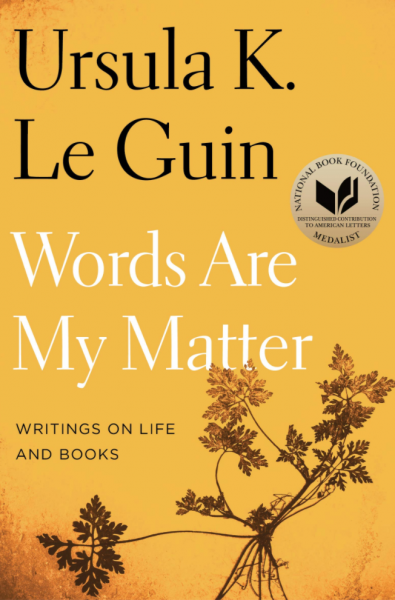
More from SPY

